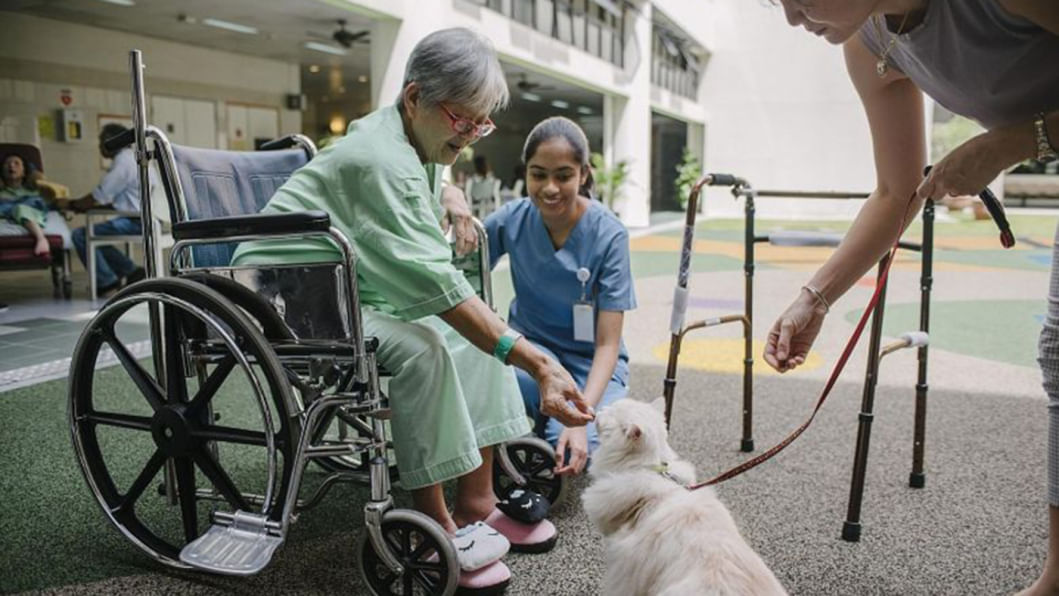Boosting patient well-being with pet-assisted therapy

The therapist who started the project is among 3,500 who won health quality service awards.
Outside Ang Mo Kio-Thye Hua Kwan Hospital in Singapore, patients play with dogs or groom and pet them as part of their occupational therapy.
Dogs Max and Cabi, together with their feline friend Alfie, are among the six animals whose owners have volunteered for the weekly half-hour sessions, which help dementia patients and those with other cognitive problems improve their well-being.
The programme, which is the first of its kind here, is the brainchild of senior occupational therapist Gelena Anandarajah, who was inspired by her love for animals growing up and the "emotional support" her pets provided.
"As dementia progresses, the patients lose the ability to communicate so they might not be able to tell you how they feel," said Ms Anandarajah, who won the Superstar Award in the intermediate and long-term care allied health category at the Singapore Health Quality Service Awards 2018 yesterday (Jan 30).
"But (the dogs) are quite sensitive (and) I feel they look more at the person's body language. It doesn't matter what you say, whether you speak or not, but they're able to pick up these cues from the patients."
Since animal-assisted therapy sessions started in 2016, patients have been happier and more engaged, she added. They have also improved physically, such as in terms of balance.
Ms Anandarajah, 28, was one of more than 3,500 winners who received awards at the MES Theatre at Mediacorp.
The winners came from 30 public healthcare institutions, community hospitals, intermediate and long-term care sector agencies and private healthcare bodies.
Organised by the SingHealth Duke-NUS Academic Medical Centre, the awards have recognised healthcare professionals from the acute and community care sectors since 2011.
"With more patients having multiple medical conditions in an ageing population, multi-disciplinary care to address different needs will become more crucial," said Minister for Health Gan Kim Yong, who was guest of honour at the event.
Another Superstar Award winner was Dr Chan Yew Meng, a senior consultant at Singapore General Hospital's (SGH) Department of Otolaryngology.
He took the prize in the clinician category for his pioneering work in the field of tinnitus - a condi-tion that causes ringing in the ears - after starting SGH's Tinnitus Clinic.
Ren Ci Community Hospital won the best team award in the "service initiative improvement team category", for reducing the number of delayed discharges.
By improving communication with caregivers, it managed to cut the number of discharge delays from 22 to two in 2016.
Nurse manager Lingaraj Prabha, 37, who was part of the project team, said: "I'm happy that my patients are discharged on time... if we didn't do this project, we would not have put ourselves into others' shoes."

 For all latest news, follow The Daily Star's Google News channel.
For all latest news, follow The Daily Star's Google News channel. 




Comments